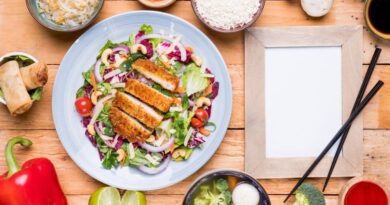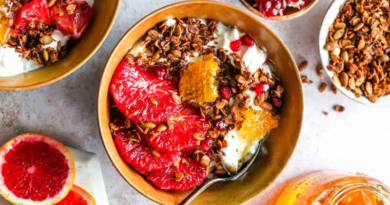Navigating a gluten-free diet can be a transformative journey for those with gluten sensitivity or celiac disease. Whether you’re newly diagnosed or have been living gluten-free for a while, successfully following this dietary path is essential for your well-being. In this blog post, we’ll provide you with seven valuable tips to not only help you embrace a gluten-free lifestyle but also thrive on it.
Discover how to make informed food choices, explore gluten-free cooking and dining, and uncover effective strategies for managing your dietary needs. We’ll address common challenges and provide practical solutions to ensure your gluten-free journey is both health-conscious and delicious.
By understanding the nuances of a gluten-free diet and implementing these expert tips, you can confidently make gluten-free living an integral part of your life, all while enjoying a diverse and nutritious array of foods.
what is a Gluten-Free Diet?
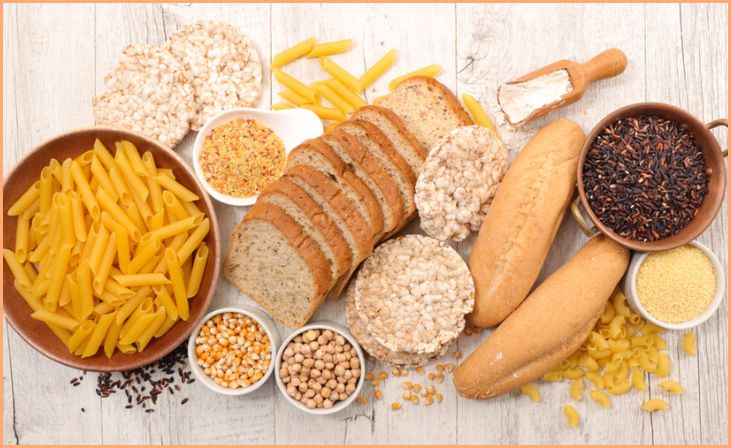
Surprisingly, a gluten-free diet shares many similarities with a generally healthy diet, requiring minimal reliance on specialty foods. “Focus on filling your plate with naturally wholesome gluten-free foods like vegetables, fruits, legumes, nuts, seeds, fish, and lean meats,” advises Begun. “Dietitians recommend these as the cornerstone of your diet, whether you follow a gluten-free regimen or not.”
If you have a fondness for grains, rest assured that you can still include them in your diet. “Many people assume that going gluten-free means giving up grains altogether, but there is an abundance of excellent gluten-free alternatives available,” notes Begun. Options like rice, millet, quinoa, and buckwheat offer a diverse range of choices. Additionally, you’ll easily find gluten-free pasta made from corn, quinoa, or beans.
By adopting this dietary approach, you’re less likely to encounter nutritional deficiencies, as highlighted by Begun. “The exception is for individuals with celiac disease, as their bodies have difficulty absorbing all the nutrients from food.”
Why Choose a Gluten-Free Diet
There are several compelling reasons to adopt a gluten-free diet, with some common ones including:
Celiac Disease: Celiac Disease is a lifelong autoimmune condition. Individuals diagnosed with celiac disease must adhere to a strictly gluten-free diet to promote healing and long-term health. This necessitates avoiding even trace amounts of gluten that may inadvertently contaminate gluten-free foods.
Gluten Sensitivity: Gluten Sensitivity manifests as discomforting symptoms following the consumption of gluten-containing foods. These symptoms can span digestive issues, skin-related concerns, or neurological symptoms like migraines or brain fog. Importantly, gluten sensitivity does not entail damage to the small intestine.
Other Health Reasons: Gluten-free diets can also benefit those with Hashimoto’s Thyroiditis, as it often positively responds to gluten avoidance. Additionally, going gluten-free can be a part of an overall strategy to reduce inflammation in the body. People may also choose gluten-free eating for reasons such as gluten intolerance, supporting a family member’s dietary needs, following an elimination diet while breastfeeding, or aiming to reduce processed foods in their diet.
Quick Link: 5 Reasons to Add Sweet Potatoes to Your Diet
Effective Tips for a Gluten-Free Diet
Adopting a gluten-free diet can be a life-changing decision, especially for individuals with celiac disease or gluten sensitivity. Navigating the world of gluten-free eating may seem daunting at first, but with the right strategies and information, it can become a seamless and satisfying lifestyle. In this article, we will explore seven essential tips for successfully following a gluten-free diet.
Tip 1: Familiarize Yourself with Reading Food Labels
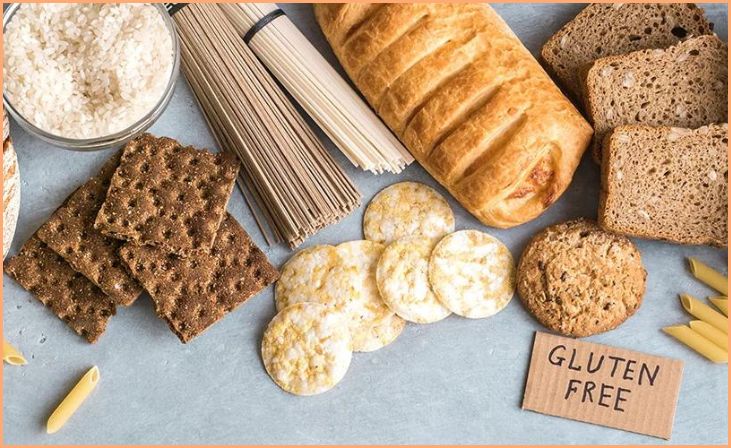
Mastering the art of reading food labels is an essential skill when embarking on a gluten-free diet. To safeguard your well-being, always seek out products that carry a clear “gluten-free” label, ensuring they adhere to safety standards designed for those with gluten sensitivity or celiac disease.
Furthermore, it’s imperative to become adept at recognizing gluten-containing ingredients like wheat, barley, and rye. These grains can manifest under a multitude of names within ingredient lists, making it crucial to scan labels meticulously. Understanding these aliases will empower you to make informed choices and maintain a gluten-free diet that is both health-conscious and free from gluten-related risks.
Tip 2: Learn Gluten-Free Foods to Include in Your Diet
Constructing a well-rounded gluten-free diet centers on whole, naturally gluten-free foods, including an abundance of fruits, vegetables, lean proteins, and dairy products. These foundational elements are not only nutritionally rich but also serve as the backbone of a wholesome eating plan.
To diversify your diet and introduce grains, consider incorporating gluten-free options like rice, quinoa, corn, and oats. It’s essential to choose certified gluten-free oats to mitigate cross-contamination risks. These grains offer a spectrum of essential nutrients, bolstering the nutritional value of your meals and enhancing satisfaction.
By building your dietary foundation on these components, you can enjoy a balanced, nourishing, and satisfying gluten-free regimen that promotes well-being while accommodating your dietary preferences and sensitivities.
Tip 3: Be Vigilant About Cross-Contamination
Guarding against cross-contamination is a paramount concern in maintaining a gluten-free diet. This risk arises when gluten-free foods inadvertently encounter gluten-containing items or surfaces. To prevent such occurrences, it’s essential to adopt stringent measures.
One crucial step is to utilize dedicated cooking utensils, cutting boards, and toasters exclusively for gluten-free foods. This practice ensures that these items remain uncontaminated. Furthermore, it’s prudent to diligently clean countertops and cooking tools before preparing gluten-free meals to eliminate any traces of gluten.
By implementing these meticulous precautions, you create a safe culinary environment, reducing the potential for cross-contamination and enabling you to maintain the integrity of your gluten-free diet, safeguarding your well-being in the process.
Tip 4: Explore Gluten-Free Alternatives
The contemporary market offers a vast array of gluten-free alternatives, spanning from bread and pasta to an assortment of snacks and delectable baked goods. These alternatives are crafted using innovative flours like almond, coconut, rice, and tapioca, granting you a diverse palette of choices.
As you explore various brands and products, you’ll discover gluten-free options that closely emulate the textures and flavors of your beloved gluten-containing foods. This culinary diversity ensures that you can savor your favorite dishes and snacks while adhering to your gluten-free dietary requirements.
Whether it’s indulging in a warm slice of gluten-free bread or relishing the taste of gluten-free pasta, these alternatives provide a fulfilling and scrumptious experience, proving that gluten-free living can be both satisfying and delicious.
Tip 5: Communicate Dietary Restrictions When Dining Out
Effective communication when dining out is a pivotal aspect of a successful gluten-free experience. It’s imperative to clearly convey your dietary restrictions to restaurant staff and stress the significance of preventing cross-contamination. The conscientious sharing of your needs ensures a safer dining experience.
Fortunately, many restaurants today have honed their expertise in accommodating gluten-free diners. They can readily adapt dishes to suit your requirements or recommend menu items that align with your dietary preferences. This evolving awareness among eateries empowers you to savor delicious meals while minimizing the risks associated with gluten consumption.
By fostering an open dialogue with restaurant personnel, you can confidently dine out, relishing not only the culinary offerings but also the peace of mind that comes with a well-understood and respected gluten-free dining experience.
Tip 6: Keep Educating Yourself About Gluten-Free Living
Remaining well-informed about gluten-free options, recipes, and the potential hidden sources of gluten is a foundational element in the journey of maintaining a gluten-free lifestyle. In a dynamic and ever-evolving culinary landscape, staying updated is crucial.
As new gluten-free products and valuable information emerge, you empower yourself to make educated choices that align precisely with your dietary requirements. This ongoing awareness equips you to navigate the gluten-free terrain confidently, ensuring that your meals are both safe and satisfying.
Additionally, being informed enables you to craft delectable gluten-free recipes, fostering culinary creativity and ensuring that your gluten-free diet remains diverse and enjoyable. By staying attuned to the latest developments in gluten-free living, you can embrace this dietary path with confidence and relish a wholesome, gluten-free lifestyle.
Also Read: A Complete Guide Of Milk Frother Nespresso Usage
Tip 7: Avoid Foods with Gluten-Containing Grains
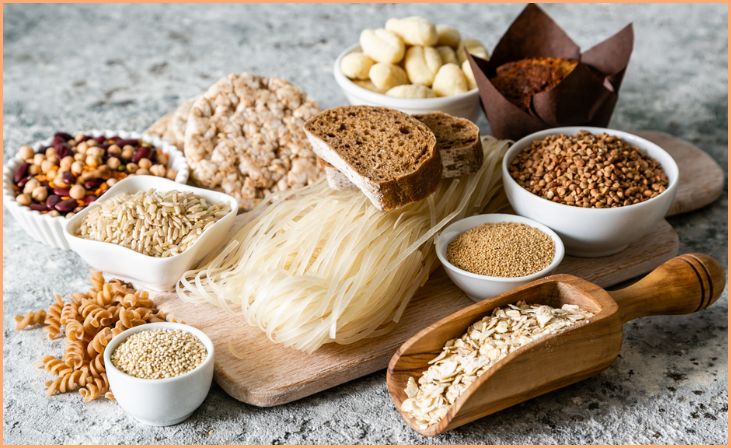
Remaining well-informed about gluten-free options, recipes, and the potential hidden sources of gluten is a foundational element in the journey of maintaining a gluten-free lifestyle. In a dynamic and ever-evolving culinary landscape, staying updated is crucial.
As new gluten-free products and valuable information emerge, you empower yourself to make educated choices that align precisely with your dietary requirements. This ongoing awareness equips you to navigate the gluten-free terrain confidently, ensuring that your meals are both safe and satisfying.
Additionally, being informed enables you to craft delectable gluten-free recipes, fostering culinary creativity and ensuring that your gluten-free diet remains diverse and enjoyable. By staying attuned to the latest developments in gluten-free living, you can embrace this dietary path with confidence and relish a wholesome, gluten-free lifestyle.
Final Words
Embracing a gluten-free lifestyle need not be daunting. With the right knowledge and a positive mindset, it’s possible to successfully navigate a gluten-free diet while relishing delicious and nourishing meals. By implementing the seven tips outlined in this blog post, you’ll have the tools to make informed choices, manage your dietary requirements, and enjoy the many benefits of gluten-free living. Remember, your well-being is at the heart of this journey, and with the right strategies in place, you can savor a gluten-free life to the fullest.
FAQs
On a gluten-free diet, it’s crucial to steer clear of wheat, barley, rye, and their derivatives. This means avoiding products like bread, pasta, and many processed foods that contain gluten. Opt for naturally gluten-free grains like rice, quinoa, and corn, and explore gluten-free alternatives.
When dining out, communicate your dietary needs to restaurant staff and chefs. Choose establishments with gluten-free menus or options and ask about their cross-contamination prevention practices. It’s important to be vigilant and ensure your meal is prepared in a dedicated gluten-free environment.
You can use a variety of gluten-free flour for baking, such as almond flour, coconut flour, rice flour, and tapioca flour. These flours can be used alone or combined to achieve the desired texture and flavor in your gluten-free recipes.
A gluten-free diet is necessary for individuals with celiac disease or gluten sensitivity. However, for those without these conditions, there is no evidence to suggest that going gluten-free offers significant health benefits. It’s important to maintain a balanced diet and consult with a healthcare professional before making drastic dietary changes.



